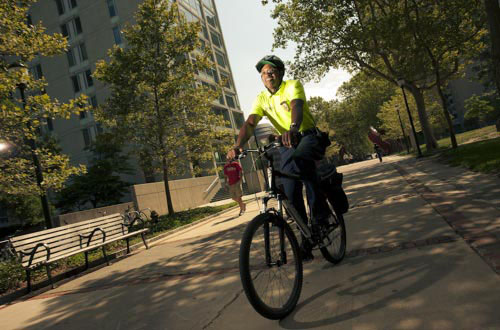
College campuses are statistically safer than the community at large and a major reason is the deployment of dedicated and highly visible security resources committed to keeping campuses safe. Campus security must find the right balance between creating an open and free environment and upholding the duty to protect people and property. The solution includes a mix of personnel, technology, facility design and crime prevention education to develop a program that is effective and affordable.
Keeping a campus safe requires preparing for and responding to many possible threats. Are you doing what you need to do to effectively balance your risks with your tight budget? Key questions to ask to ensure you are building an effective security program include:
-
Are you spending appropriately given the unique risks your campus faces?
-
Do you have the right mix of sworn and non-sworn officers?
-
Are your public safety officers equipped and trained?
-
Have you thoroughly evaluated the implications of using students in any quasi-security roles?
-
What are the overtime implications for understaffing?
-
Do you have the ability to meet seasonal and emergency personnel demands without taxing your staff?
There are many different risks attendant with various types of institutions and each campus has a unique profile given its geographic setting, types of programs, hours of operation, and building mix. Stakeholder expectations are rising with serious legal and liability implications if a campus isn’t providing security in light of industry best practices. Ultimately, evaluating the elements of effective campus security comes down to measuring the risk tolerance of your stakeholders and balancing a series of sound investments in your security program. What potential liability could your campus face if security corners are cut?
The ideal campus safety program should include a thoughtful balance of in-house or municipal law enforcement, professional security staff, facility design, crime prevention programs and technology that is in line with the assessment of risk at a specific location. Practical decisions need to be made to address and answer questions raised through each college’s individual security assessment.
Read more about these best practices in Keeping Your Campus Safe – And Your Budget Lean.
About the Author
Paul Caruso is the Vice President of Sales – New England for Allied Universal.























